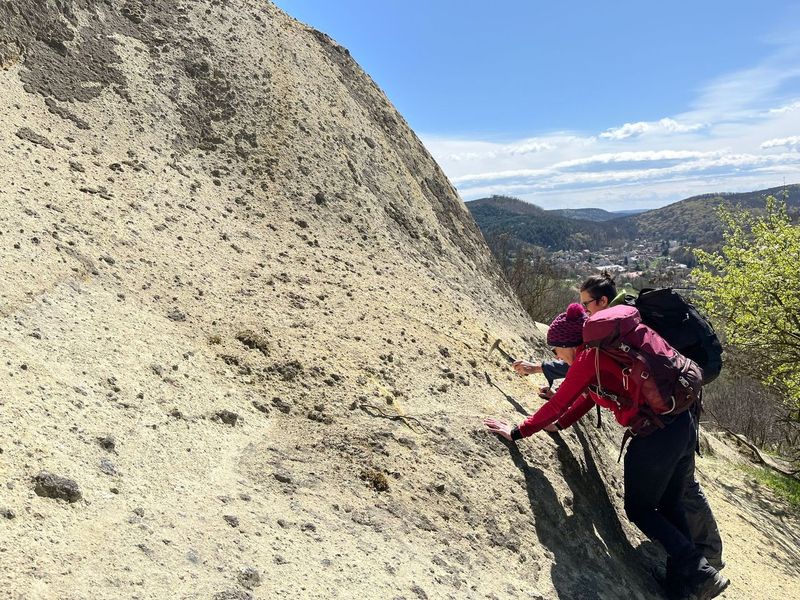First Volcanology Field Workshop in Hungary
In early April, a five-day field workshop was held in Northern Hungary, where postdoctoral researchers, PhD students and experienced researchers from ten countries came together to explore the region’s unique volcanic formations. The program was jointly organized by MTA–HUN-REN CSFK Lendület PannonVolcano Research Group and the IAVCEI Commission on Volcanogenic Sediments.
The MTA-HUN-REN CSFK Lendület Pannon Volcano Research Group and the IAVCEI (International Association of Volcanology and Chemistry of the Earth's Interior) Commission on Volcanogenic Sedimentation organized a five-day field workshop, during which participants could learn about the formation of explosive volcanic eruptions at fifteen different sites. The programme has helped to understand not only the eruptive formations of basaltic, andesitic and rhyolitic magmas and their formation mechanisms, but also understanding of contemporaneous transport and deposition of volcanogenic materials, such as in the form of debris flows, lahars, and fluvial processes.

The pumiceous beds of pyroclastic flows and surges as well as volcanic ash falls in the cliffs beneath the Sirok Castle indicate the pulsating explosive volcanic eruption of the massive, destructive Demjén eruption 15 million years ago.
Participants came from ten countries, ranging from Brazil to New Zealand. The goal of the workshop was to deepen young researchers' understanding of the relationship between volcanic activity and sedimentation through hands-on field experience. In addition to scientific knowledge, they also gained perspective on how geoscience connects with cultural and natural heritage. This was supported by the staff of the Novohrad–Nógrád and Bükk-vidék Geoparks, as well as the Bükk National Park.
The leaders and organizers of the field program were Réka Lukács, head of the MTA–HUN-REN CSFK Lendület PannonVolcano Research Group; Péter Gál, a member of the research group; Profs Orsolya Sztanó and Szabolcs Harangi from the Eötvös Loránd University; and Italian researchers Andrea Di Capua (Consiglio Nazionale delle Ricerche) and Federica Barilaro (University of Calabria). The programme is yet another example of how the Pannonian Basin can be an excellent field site for international geoscience training and research - and how the professional achievements of Hungarian researchers can make a significant contribution to the advancement of scientific knowledge.

